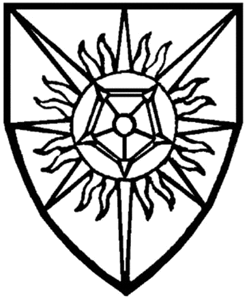
We are pleased to announce the winners of the 2022 Schallek Awards
These grants of $2,000 support  graduate students conducting doctoral research in any relevant discipline dealing with late-medieval Britain. They help defray research expenses such as the cost of travel to research collections and the cost of photographs, photocopies, microfilms, and other research materials. Four outstanding Ph.D. candidates are this year’s recipients:
graduate students conducting doctoral research in any relevant discipline dealing with late-medieval Britain. They help defray research expenses such as the cost of travel to research collections and the cost of photographs, photocopies, microfilms, and other research materials. Four outstanding Ph.D. candidates are this year’s recipients:
- Bethany Donovan at the University of Michigan. Bethany’s dissertation is tentatively titled “By which roguery and falsehood the people are deceived: False Work, Fraud, and Material Culture in Late Medieval London, 1275-1527″ and explores conceptions of falsity and fraud in commercial transactions as a means of understanding the broader social, cultural, and economic conditions of people’s relationship to objects. This time frame encapsulates both the period immediately before the Black Death, when England was experiencing the increased effects of commercialization but facing serious demographic pressures, and the era after the Black Death, which triggered major structural changes, resulting in both economic contraction and new opportunities for consumption of goods.
- Sarah Jane Friedman at the University of Wisconsin-Madison. Sarah intends to use the award monies to finance a trip to England so that she may examine medieval gynecological texts as part of her dissertation research. She writes: My project explores how religious, literary, medical, and historical texts written primarily in Middle English during the fourteenth and fifteenth centuries represent a paradoxical type of male vulnerability, whereby men who witness––and in some cases cause––women’s suffering experience some degree of wounding from which they ultimately profit in social, cultural, and even political ways. While these wounds are sometimes symbolic and other times more literal, they all have material effects on individuals and communities. In some cases, for example, the pain that men endure in response to witnessing violence against women is shown to be a force that bonds men together to form communities.
- Margaret McCurry at New York University. Margaret describes her research project as follows: My research analyzes the role of the voice within the works of the medieval visionaries Margery Kempe, Julian of Norwich, Richard Rolle, Walter Hilton, and the anonymous author of The Cloud of Unknowing. My dissertation, which is tentatively titled “Voces Mysticae: Sonorous Signification and Miraculous Translation in Medieval Mystical Texts“, will study the paralinguistic means by which these mystics translate the ineffable love of the Divine into effable human terms using whispers, murmurs, screams, cries, and singing.
- Kristen M Vitale at the University of Connecticut. Kristen’s proposed dissertation conducts the first analytical study of spectacle’s function as performative politics in the early Tudor state (1485–1533). Tournaments, pageants, plays, and the like were forms of entertainment that ornamented the lives of the elite. The performance of each festivity presented new cultural forms that emanated from England’s European counterparts; the traditional medieval themes of chivalric idealism and romanticism clashed with and then accommodated Italianate classicism to fashion a cultural hybrid that created new opportunities for performance and expression. These artistic inspirations supported spectacle’s function in communicating the evolving politico–cultural proceedings of the early Tudor state.
The American Branch congratulates Bethany, Sarah, Margaret, and Kristen on their achievements, and wishes them well in their future research endeavors.
About the Schalleck Awards and Fellowship:
Supported by a bequest of $1,340,000 from the estate of William B. and Maryloo Spooner Schallek, the American Branch in collaboration with the Medieval Academy of America, offers a full-year fellowship and five graduate student awards.
The Schallek Fellowship provides a one-year grant of $30,000 to support Ph.D. dissertation research in any relevant discipline dealing with late-medieval Britain. The annual application deadline is 15 October.
The Schallek awards support graduate students conducting doctoral research. The $2,000 awards help defray research expenses noted above, but the cost of books or equipment such as computers is not included. The annual application deadline is 15 February.
Graduate students who are members of the Medieval Academy and who seek support to research and write Ph.D. dissertations on topics related to late medieval Britain (ca. 1350-1500) are invited to apply here.
